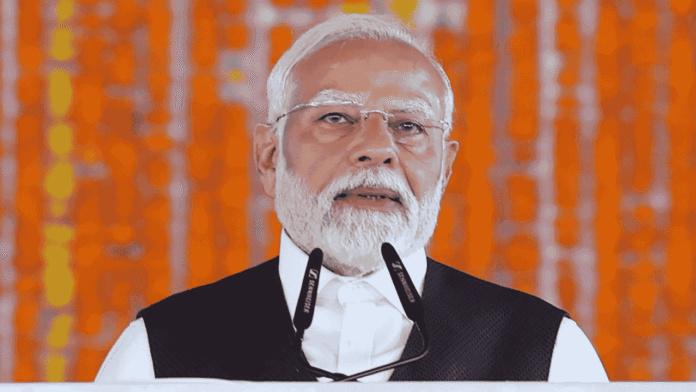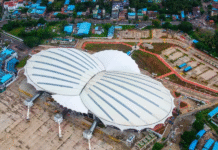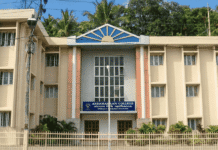New Delhi, Aug 17 (IANS) — Prime Minister Narendra Modi on Sunday said citizens will receive a “double bonus” this Diwali through the next generation GST reforms aimed at reducing the prices of goods and services for the poor and middle class.
Speaking at the inauguration of two major highway projects in Delhi, the Prime Minister said: “For us, reform means the expansion of good governance, and continuous focus is being placed on reforms.”
He announced that several major reforms will be introduced in the coming days to make both life and business easier.
“As part of this effort, a next-generation reform in GST is being planned. This Diwali, citizens will receive a double bonus through the GST reform,” Modi said.
The Prime Minister added that the complete framework has been shared with all states and urged their cooperation for swift completion so that “this Diwali can be made even more special.”
Modi underlined that the government aims to simplify GST and revise tax rates so that benefits reach every household, particularly the poor and middle class, while also supporting entrepreneurs, traders and businesses.
According to government sources, the Finance Ministry on Friday sent its proposal to the GST Council for introducing two GST rates of 5 per cent and 18 per cent across all goods, replacing the existing four-slab regime. The 12 per cent and 28 per cent slabs would be removed.
Under the plan, essential goods consumed by the common man, health-related items, handicrafts and insurance would be taxed at 5 per cent, while manufactured products such as refrigerators and televisions would attract 18 per cent.
However, sin and luxury goods like cigarettes, tobacco, sugary drinks and pan masala will remain under a separate 40 per cent bracket.
The government believes this rationalisation will boost consumption and spur economic growth. The GST Council, which includes finance ministers of states, is expected to meet in September to consider the proposal.
The move follows Modi’s Independence Day address where he promised next-generation GST reforms by Diwali to provide “substantial” relief to the common man and small businesses

Key areas identified for reform include rationalisation of tax rates, reduction of levies on essential and aspirational goods, and correction of inverted duty structures to support domestic value addition.
Officials said the end of the compensation cess has created fiscal space, allowing more flexibility to align tax rates for long-term sustainability.





